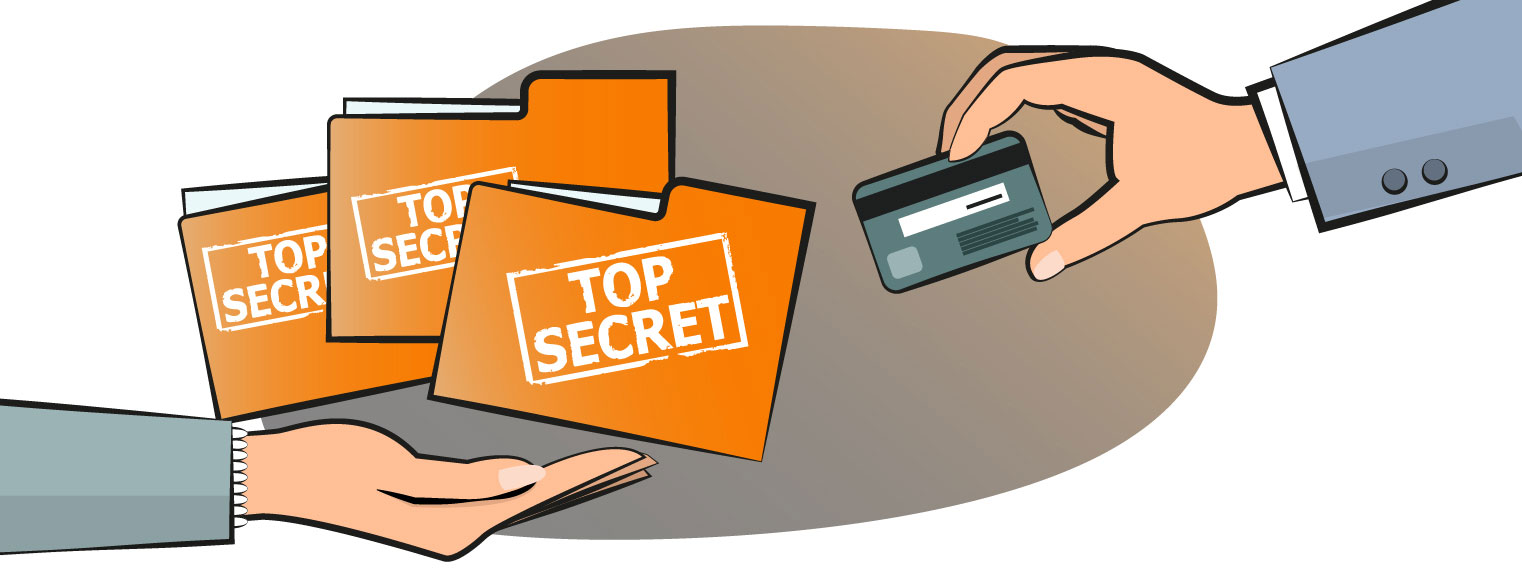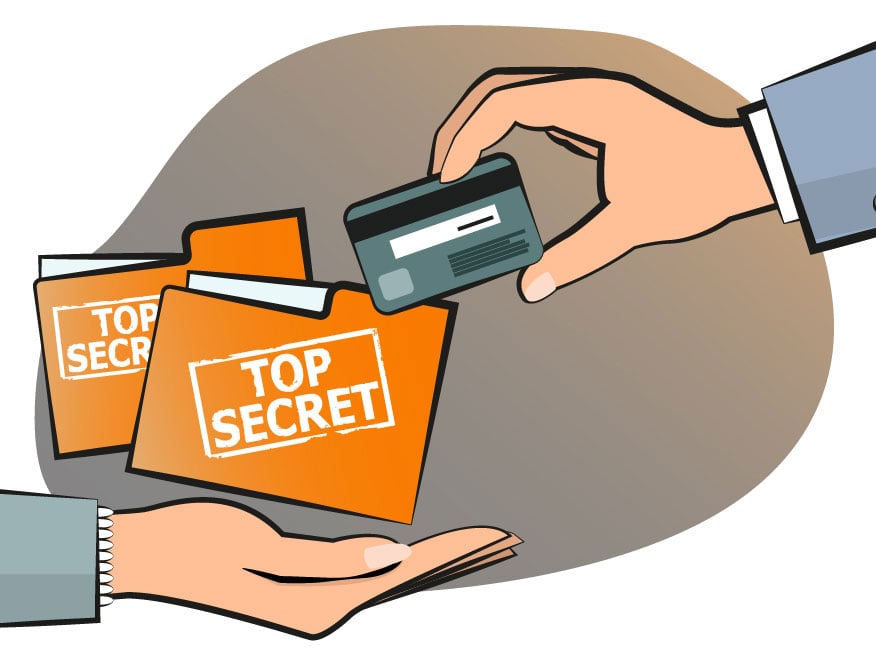How to prevent leaks of financial and other sensitive information in your company.
We reviewed the results of the study related to the leakage of financial and other corporate confidential information. It would be no exaggeration to say that company secrets get into the hands of third parties accidentally in as many as half the cases. We have conducted our own investigation, found out gaps in the protection of information from leakage through technical channels, and discovered ways to prevent incidents.
Accounting information is one of the most vulnerable to leaks. It includes financial documentation, reporting, business plans, contracts, prices, salaries, and personal data of employees.
How information can leak
There is a plethora of sources of information leaks such as messengers (Skype, ICQ, etc.), email, open sources (social networks, forums), paper, flash drives, disks, backups etc. Moreover, both unintentional and intentional leaks can be made from the same sources.
An entire industry, illegal competitive intelligence, helps to get secret information. Illegal intelligence involves espionage. In other words, people who need information recruit employees of the company or implant their person into the staff. Competitive intelligence utilizes social networks, interviews, and open sources of information.
Signs of selling company secrets
First, the company loses customers. This is a sign that someone leaked the client base to competitors.
Secondly, there is a visible change in the behavior of some employees, for example, a sudden improvement in their financial situation, decreased interest in the work, more active correspondence, frequent transfer of graphic or password-protected archived files etc.
Thirdly, there is grouping. Let’s cite a case when 30 out of 40 employees responsible for contracting registered their own company through collusion. They offered customers the same services, but for a lower price, and renewed contracts on behalf of their own company.


Effective ways to prevent leakage
- Employment contract. The contract can spell out that the employer has full access to information on the computers of employees and has the right to claim damages in case the trade secrets are disclosed. These measures are a powerful psychological deterrent.
- High salary. The fear to lose it will discourage employees from betraying the company.
- Training. Sometimes companies arrange provocation: they send employees viral emails, ask for confidential information by phone etc. At the end, they assess how the staff reacts to such actions and develop further protection measures.
- DLP system (Data Leak Prevention). It tracks the transfer and printing of files, sudden spikes in Internet communication, visiting atypical websites, etc. It also performs a linguistic analysis of correspondence and documents, and establishes the danger of a leakage by keywords.
Data leakage channels
PAPER DOCUMENTS
Paper confidential documents can be exposed more often regardless of the leakage nature. Selling secrets on paper is safer than in electronic form as it is difficult to prove the seller’s identity (unless there is a record).
COMPUTERS
Desktop computers is the second most common channel which is used by insiders to steal confidential information. In fact, computer is not a channel for transmitting sensitive data, but a channel for its receiving. With it, an insider can access the corporate information on the company's server, download it to removable media or send by email.
INTERNET
Accidental leaks can occur when financial data is contained in online programs with simple passwords. These are digital or alphabetic passwords following a simple pattern on a keyboard: 123456, 123123, 12345678, qwerty, abc123, dragon, 111111, iloveyou, sunshine, passw0rd, superman, football, etc.
Employees believe that sending sensitive data from personal box is more secure then from the corporate mail. This is a misconception as the email address can be easily identified by accounts. Email also enables uncovering the company’s secrets with viral emails. Spies study the interests of an employee (on social networks, etc.) and send a letter that this employee will probably open. For example, a person collecting teddy bears can receive an email with the subject "Funny bear".
SMARTPHONES AND LAPTOPS
Smartphones and laptops are a less common channel for leaking confidential information, but they are often used by senior managers. Case: a confidential meeting. Present people have smartphones or, more often, laptops with the meeting documents. An insider activates the built-in microphone looking so innocent. Then he/she leaks everything that was said at the private meeting into the outside world.
REMOVABLE MEDIA AND BACKUP COPIES
Being convenient, flash drives and portable hard disks are used to transfer information. In this case an insider can pretend to have lost it. Sometimes information is leaked through an oversight. For example, an employee takes reports with financial indicators on a flash drive to complete the work from home. At home, there is an unsecured Internet connection. As for backup copies, you can store them online (for example - iCloud).
Sign up for a free trial
SearchInform uses four types of cookies as described below. You can decide which categories of cookies you wish to accept to improve your experience on our website. To learn more about the cookies we use on our site, please read our Cookie Policy.
Necessary Cookies
Always active. These cookies are essential to our website working effectively.
Cookies does not collect personal information. You can disable the cookie files
record
on the Internet Settings tab in your browser.
Functional Cookies
These cookies allow SearchInform to provide enhanced functionality and personalization, such as remembering the language you choose to interact with the website.
Performance Cookies
These cookies enable SearchInform to understand what information is the most valuable to you, so we can improve our services and website.
Third-party Cookies
These cookies are created by other resources to allow our website to embed content from other websites, for example, images, ads, and text.
Please enable Functional Cookies
You have disabled the Functional Cookies.
To complete the form and get in touch with us, you need to enable Functional Cookies.
Otherwise the form cannot be sent to us.

Subscribe to our newsletter and receive a bright and useful tutorial Explaining Information Security in 4 steps!

Subscribe to our newsletter and receive case studies in comics!